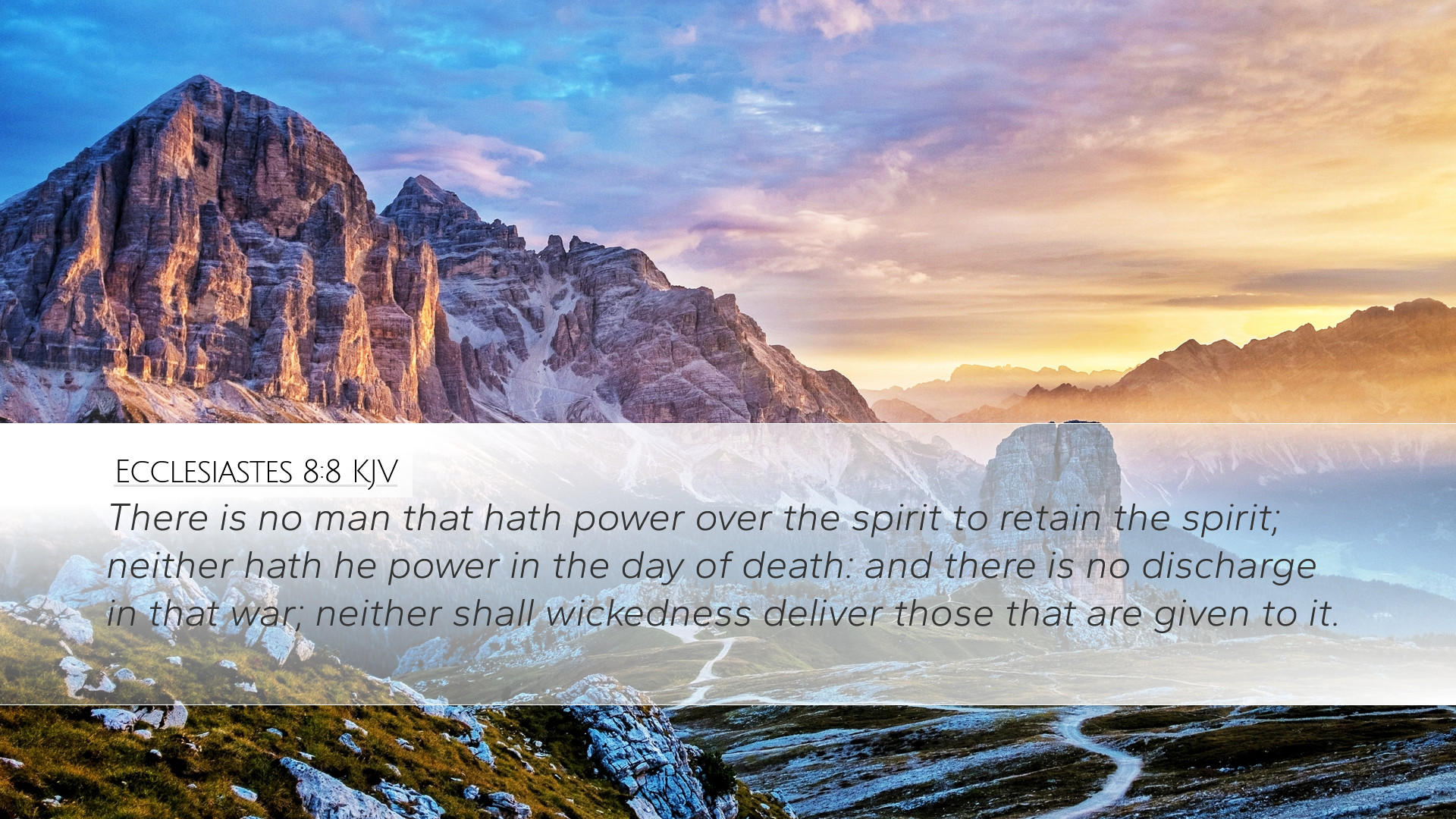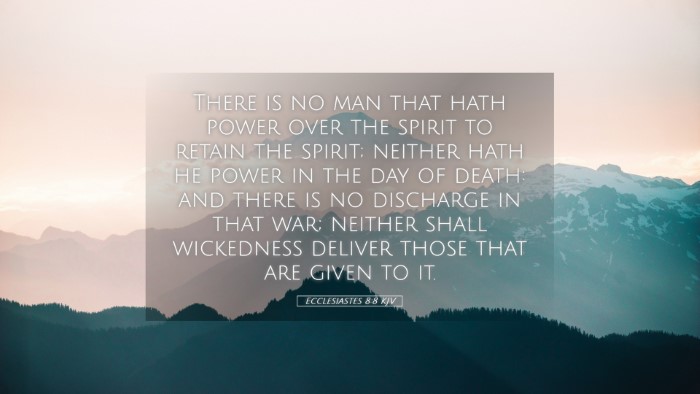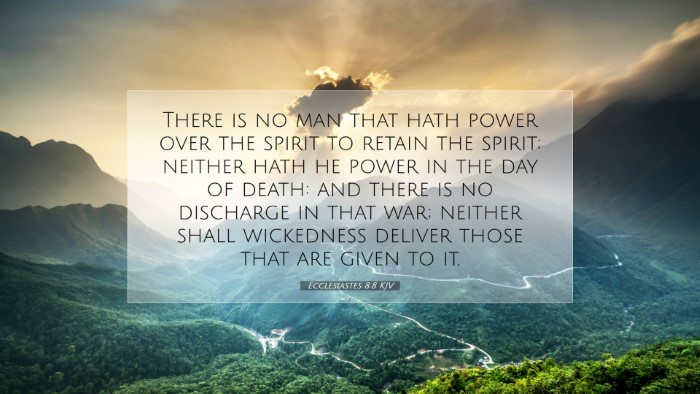Commentary on Ecclesiastes 8:8
Ecclesiastes 8:8 states:
“No man has power over the spirit to retain the spirit, and no man has power in the day of death: and there is no discharge in that war; neither shall wickedness deliver those that are given to it.”
Introduction
The passage of Ecclesiastes 8:8 presents profound reflections on the nature of human existence and the inevitability of death. This verse addresses some of life's most pertinent questions regarding human power and the limitations that come with mortality. Throughout history, various commentators have offered insights that deepen our understanding of the text.
Analysis of Key Terms
To fully grasp the significance of this verse, it is crucial to consider the key terms:
- Spirit: Represents the life force or essence of a person, highlighting that human beings are not solely material.
- Power: Refers to the authority or ability to control circumstances, particularly pertaining to life and death.
- Day of Death: An inevitable moment where every person will face their mortality.
- War: Symbolizes the struggles and conflicts inherent in human existence, particularly regarding life and death.
- Wickedness: A representation of moral failing, serving as a contrast to righteousness and its outcomes.
Matthew Henry's Insights
Matthew Henry, in his commentary, emphasizes the limitations of humanity in controlling life and death. He posits:
“Man cannot control the spirit, nor can he cling to life, for life and death are in the hands of God alone.”
Henry elaborates that this verse serves as a reminder of human vulnerability and the sovereignty of divine will. The struggle of life is a conflict that cannot be won through human strength alone, promoting dependence on God.
Albert Barnes' Perspective
Albert Barnes discusses the concept of man's lack of power over death, noting:
“The day of death cannot be avoided, and no one can escape from its decree.”
He remarks on the futility of human striving against the destiny of death. Barnes highlights that wisdom in responding to the reality of death leads to a meaningful life, urging the reader to seek divine insights and embrace the temporality of worldly pursuits.
Adam Clarke’s Commentary
Adam Clarke offers a theological interpretation focusing on the second half of the verse regarding wickedness:
“Neither shall wickedness deliver those that are given to it; it enslaves rather than liberates.”
Clarke stresses that moral corruption offers no refuge from the finality of death. He encourages believers to pursue righteousness, as it prepares them for the inevitable end and secures their eternal destiny beyond death. The essence of his message is clear: sinful behaviors yield captivity rather than freedom.
Theological Implications
This verse fundamentally grapples with the theme of divine sovereignty over life and death, encouraging humility in the face of inevitable mortality:
- Recognition of Human Limitations: It serves as a sobering reminder that human beings are creatures of time, subject to the ultimate authority of God.
- Call to Righteous Living: A moral imperative arises, urging individuals to choose virtue over vice, understanding that wickedness leads to destruction.
- Hope in Divine Justice: The mention of divine control implies that faithfulness to God’s commands will ultimately yield a favorable outcome, even in death.
- Reflection on Life’s Purpose: Believers are prompted to reflect on their lives’ significance in light of eternity, leading to spiritual growth and maturity.
Practical Applications
For pastors, theologians, and students, Ecclesiastes 8:8 offers several avenues for practical application:
- Preaching on Mortality: Pastors can use this text to address the reality of death, encouraging congregants to live wisely and righteously.
- Incorporating Wisdom Literature: Treat this verse as a bridge to other wisdom literature, highlighting the consistent themes of Ecclesiastes.
- Counseling in Grief: When comforting those who are grieving, the truths found in this verse can provide solace and encourage acceptance of divine sovereignty.
- Personal Reflection: Individuals are urged to contemplate their own lives, evaluating their choices in light of the coming day of death.
Conclusion
Ecclesiastes 8:8 encompasses deep truths regarding human existence, power, and the ultimate inevitability of death. It highlights the lack of control we possess over life's greatest questions, while simultaneously calling for a life of righteousness. Through the reflections of Matthew Henry, Albert Barnes, and Adam Clarke, a rich tapestry of understanding emerges that is applicable to believers today. This text invites us to walk wisely, live righteously, and ultimately trust in God's eternal plan.


